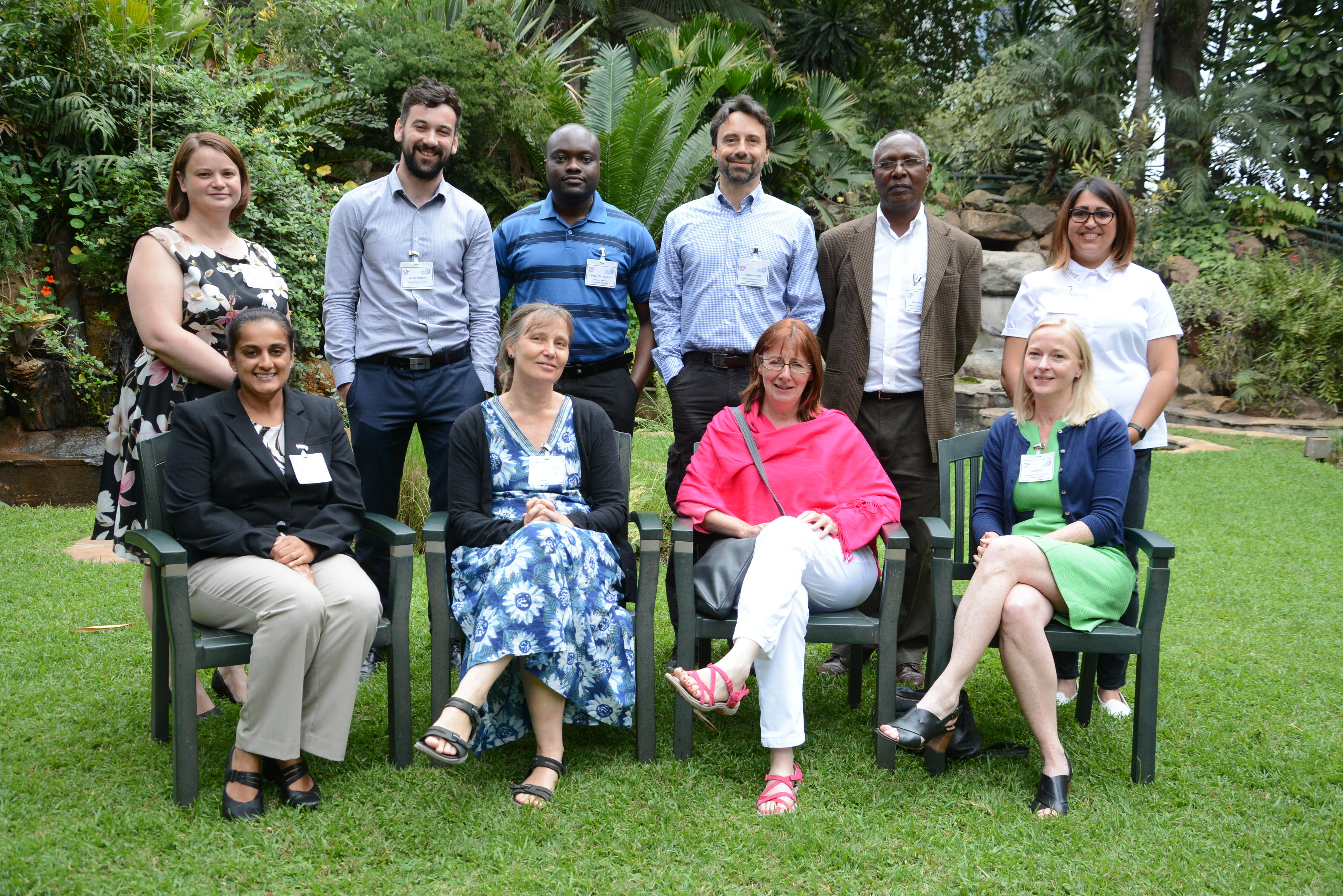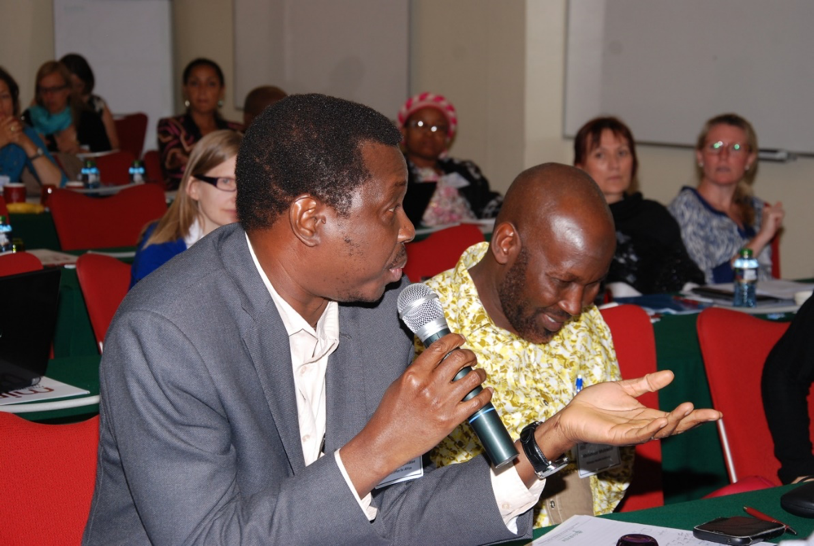
Members of the IMPPACT Consortium
Back Left: Tracy Seddon, Patrick Walker, Mwayi Madanitsa, Feiko Ter Kuile, Simon Kariuki, Cheryl Giddings | Front Left: Meghna Desai, Annemieke van Eijk, Jayne Webster, Jenny Hill
Rationale
Approximately 125 million women in malaria-endemic countries become pregnant every year, of whom over 85 million live in areas of Plasmodium falciparum malaria transmission. It has been estimated that, in areas of sustained transmission in sub-Saharan Africa in the absence of protection, infection in pregnant women would result in 900,000 preventable low birth weight (LBW) infants each year and the deaths of 200,000 new-borns and 10,000 mothers. These adverse outcomes can be substantially reduced by the use of highly cost effective interventions as recommended by WHO, including intermittent preventive treatment (IPTp) with sulphadoxine-pyrimethamine (SP), insecticide treated nets and case management of febrile illness and anaemia.
Challenge
Countries have faced a series of challenges with implementing existing malaria in pregnancy control policies leading to suboptimal coverage and leaving many pregnant women at risk. A review of national policies and guidelines on malaria in pregnancy in several African countries showed variation in the interpretation of malaria in pregnancy control policies between national malaria and reproductive health programmes, resulting in inconsistent guidelines with the potential to cause confusion and incorrect practices among health workers. This highlights the importance of providing clear evidence-based guidance to inform the translation of global policy to country-level policies and clinical guidelines.
Activities

Methodological tools for translation into public health programmes
The translation of research evidence into policy and practice in malaria endemic countries require methodological tools to support countries to identify and deploy the safest and most cost effective treatment and prevention interventions according to different geographical strata. Modelling to compare the effectiveness of different chemoprevention strategies such as ISTp and IPTp in different areas of transmission intensity and parasite resistance to SP will be combined with up-to-date high resolution maps of the distribution of these determinants across Africa to provide maps of the effectiveness of these interventions when implemented according to recommended protocols. In addition, tools and guidelines to optimise adherence to treatment and prevention guidelines will be developed and disseminated in collaboration with the WHO, Roll Back Malaria and IMPPACT study partners.
Policy analysis and evaluation of translation activities
Two policy studies are ongoing in four countries (Gambia and Mali in West Africa; Kenya and Malawi in East Africa), the first will analyse the policy decision-making structures and processes required to formulate policy for malaria in pregnancy control to enable focusing of support activities to facilitate the policy change process and implementation of new policy. The second study will be a process evaluation of the success of the support activities given by the programme partners in driving policy change and implementation preparedness in each country.
Technical support to countries to formulate national policies and plans for implementation, monitoring and evaluation
Results from EDCTP-funded research will be disseminated to national policy stakeholders in all seven countries involved in the original research at two regional meetings, one in East Africa and one in West Africa. In-Country research partners will offer technical support to policy makers and technical agencies responsible for formulation and implementation of national policy on malaria in pregnancy in the four focus countries.
LSTM Secretariat
Dr Jenny Hill PI and Senior Programme Manager
Tracy Seddon Programme Coordinator
Partners and Networking:
| Prof Feiko Ter Kuile | LSTM |
| Dr Annemieke van Eijk | LSTM |
| Dr Jayne Webster | London School of Hygiene & Tropical Medicine, UK |
| Dr Patrick Walker | Imperial College London, UK |
| Prof Umberto D’Alessandro | Medical Research Council, The Gambia |
| Dr Mwayi Madanitsa | College of Medicine, Malawi |
| Dr Kassoum Kayentao | Malaria Research Training Centre, Bamako, Mali |
| Dr Simon Kariuki | Kenya Medical Research Institute, Kenya |
| Dr Meghna Desai | Centre for Disease Control, Atlanta, USA |

This project is part of the EDCTP2 programme supported by the European Union



